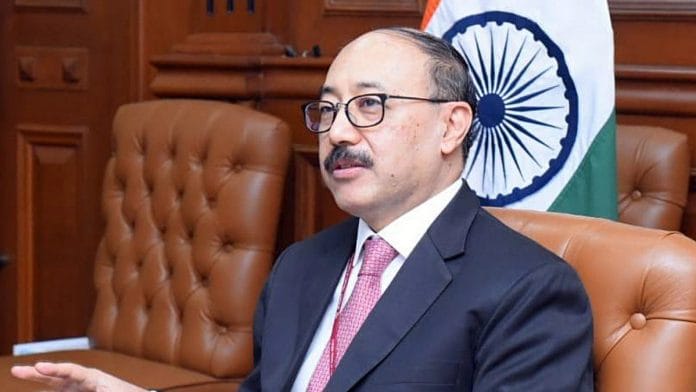New Delhi: India on Friday conveyed to several countries that it will use its strength in vaccine production and delivery to help humanity in fighting the coronavirus crisis.
The message was delivered by Foreign Secretary Harsh Vardhan Shringla during an interaction with ambassadors and high commissioners of foreign missions in India.
“Several countries have been approaching us for receiving vaccine supply. I reiterate our Prime Minister’s commitment that India’s vaccine production and delivery capacity will be used to help all humanity in fighting this crisis. India will also help interested countries in enhancing their cold chain and storage capacities for the delivery of vaccines,” he said.
The interaction was organised to provide the envoys an outline of the COVID-19 vaccine development programme in India, delivery system management and ongoing international cooperation on it.
Shringla said India is on track to develop the vaccines.
“We are exploring the possibility of conducting phase three trials in a few of our partner countries. We are also looking forward to research collaboration in the field of vaccine development. Based on willingness, we may also go for joint production of vaccines in some countries,” he said.
“We have already conducted online training sessions for nearly 90 participants from eight neighbouring countries to develop capacity in clinical trials and clinical practices. Based on demand, we can conduct more such training courses,” he added.
To give a flavour of India’s “robust and resilient” progress in vaccine development and the trial process, the foreign secretary said that the government is planning to take a delegation of resident envoys for a tour of vaccine and diagnostic facilities in Pune.
Talking about the COVID-19 infection in India, he said the daily caseload has reduced to below 50,000 from around 1,00,000 a few weeks ago.
“We remain vigilant though, and continue to devise and re-devise strategies based on our experiences across India,” he said.
Shringla said India’s recovery rate is now 91.96 per cent (as on November 3, 2020) and case fatality rate has dropped to 1.49 per cent due to increase in testing numbers, contact tracing, effective isolation protocol, efficient use of hospital beds, increased availability of medical equipment, testing kits and sustained public awareness campaign.
“With progressively falling positivity rate, testing has worked as an effective tool to limit the spread of infection,” he said.
Also read: Trump or Biden, India-US ties will remain ‘strong and robust’ — Foreign Secy Shringla in UK






